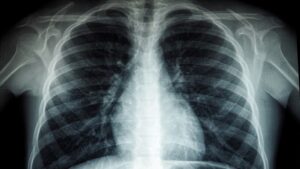[ad_1]
WHAT IS A HERNIA?
A hernia is the name given to the swelling of the large muscle in the upper part of the stomach that separates your abdomen and chest area through an opening in the diaphragm towards your chest.
stomach hernia, sliding type hernia and paraesophageal hernia It has 2 types.
Normally, the esophagus passes through the diaphragm and attaches to the stomach. In the presence of a sliding type hernia, the lower part of the stomach and esophagus slides into the chest through the diaphragm. Sliding gastric hernia is more common than paraesophageal hernia. In later stages, it can turn into a paraesophageal version. It will be better for the patient to be treated before that stage.
In paraesophageal hernia, while the esophagus and stomach remain where they should be, a part of the stomach is compressed for a while to be positioned near the esophagus. In this process, your stomach may be compressed and blood flow may be interrupted. This type occurs mostly in women.
Since the progression of paraesophageal gastric hernia can lead to life-threatening risks, its treatment should never be delayed.
Gastric hernia is a disease that can be seen at any age, but is more common in individuals over 50 years of age.
WHAT ARE THE SYMPTOMS OF HERNIA?
Gastric hernia symptoms often do not manifest themselves in the early stages of the disease. However, if the disease progresses and the hernia grows, some symptoms occur. These symptoms are;
– Heartburn that occurs suddenly at any time of the day,
– Feeling of discomfort and pain in the stomach or esophagus,
– Feeling of bloating and burping even though not much food is eaten,
– Bitter or sour taste at the back of the throat,
– Difficulty swallowing while eating or drinking,
– It manifests itself as nausea and, as a result, vomiting.
If the patient has persistent constipation, severe pain in the chest or abdomen, sudden coughing at night or before going to sleep, intense nausea and vomiting, seek immediate medical attention. Because these symptoms indicate that the hernia has progressed too far.
HOW IS HERNIA TREATED?
Gastric hernia treatment gastritis and reflux disease treatment is similar to. There is no specific drug treatment. The patient’s a regular diet It is the most effective treatment to protect stomach health by applying it.
Patients diagnosed with gastric hernia should avoid acidic foods and beverages, such as coffee, butter, and chocolate. These patients should sleep at least 3 hours after eating.
In order to avoid pressure in the stomach at night, the head should be positioned higher than the chest with a high pillow. Care should be taken not to consume products that can cause gas in the stomach.
In advanced gastric hernias, surgical intervention is performed if the specialist deems it appropriate. The herniated part of the stomach is replaced and necessary interventions are made to prevent herniation again.
Laparoscopic surgery is generally preferred if the size of the disease is appropriate and in line with the surgeon’s recommendations.
In order to prevent gastric hernia, one should eat regularly, pay attention to stomach health and avoid foods that will harm the stomach. Stress should be avoided and absolutely no smoking.
Follow NTV on social media
[ad_2]
Source link






